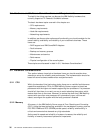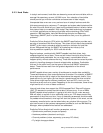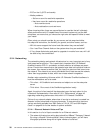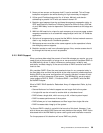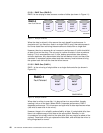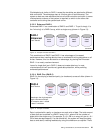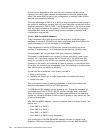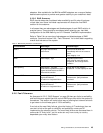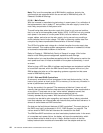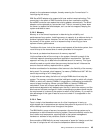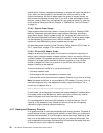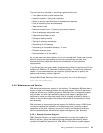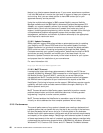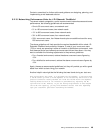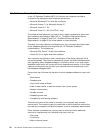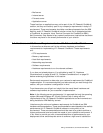44 J.D. Edwards’ OneWorld B73.3 and Windows Terminal Server
Note: This is not the complete set of IBM Netfinity solutions, but only the
solutions that are supported within the current set of IBM Netfinity and J.D.
Edwards’ OneWorld offerings.
5.2.6.1 Main Power
With the increase in manufacturing technology in recent years, it is a reflection of
that advancement, that in today’s IT environment, the main supply is one of the
most likely components of the system to fail.
To avoid losing data when the main supply fails, there is only one real solution,
that is, to use an uninterruptible power supply (UPS). A UPS will not only provide
main power in the event of a main power failure, but also reduce or eliminate
surges, spikes, and noise on the main supply, during normal use, providing a
much smoother level of main voltage. This aids in protecting system data from
corruption by these unpredictable characteristics of the main supply.
The UPS will provide main voltage for a limited time after the main supply has
been removed. This enables system management software or hardware to initiate
an automatic unattended shutdown of the server.
Refer to Chapter 4, “IBM Netfinity Family of Servers” on page 19 for further
details on the IBM systems management capabilities and offerings.
Another option is to use the software supplied with the UPS system to monitor the
main power and have it initiate a shutdown of the system automatically, in such
an event.
When buying a UPS from IBM all software and hardware are tested and certified
to be solution assured, within the IBM ServerProven Program with not only the
IBM hardware but also any of the operating systems supported on that same
model of IBM Netfinity server.
5.2.6.2 Disk and RAID Controllers
A commonly overlooked, critical component is the hard disk controller, it is the
heart of any system as much as the CPU or memory. It is also very influential in
terms of performance and reliability.
So why do we take it for granted? The reasons are historical. It was not until
recently that hard disk controllers had some fault tolerance, either as standard or
as an option. There were one or two "niche market" adapters around, that
provided some fault tolerance but these were expensive and not
industry-standard by any means. With the advent of RAID, the hard disk
controller has started to gain recognition and respect. Many industry standard
hard disk adapters are now available with features that provide fault tolerance. In
almost all cases these are RAID controllers.
So what are the fault tolerant features of RAID controllers? The most obvious is
the RAID array itself, as discussed in 5.2.5, “RAID Support” on page 39. The
various levels of RAID offer fault tolerance for the data on the disks.
The IBM ServeRAID controllers can also have battery-backed cache. In the event
of a complete main power failure, the battery will store the cached data, which
has not been written to disk for up to 14 days. Another function is that the
battery-backed cache modules are removable from the adapter and can be



